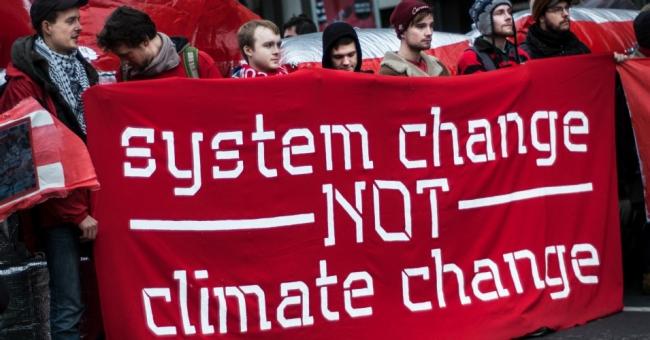Articles Menu

PARIS, France – The most inspiring moment of December 12 was not the adoption of the United Nations Paris agreement but the sight of more than 20,000 people on the streets, building the power of the people, demanding climate justice and an end to dirty energy.
The Paris agreement was a diplomatic success but it will not stop the climate catastrophe; it is neither ambitious nor just. Many heads of state used the language of climate activists when they addressed the summit on November 30. They noted the extreme urgency of the crisis, their responsibility to future generations and the need for a just agreement.
"After more than twenty years of climate negotiations, developed countries demonstrated once again that they can talk the climate justice talk, but not walk the walk."
As soon as their speeches were over, the hollowness of the leaders' words became clear. Negotiations quickly showed the divide between developed and developing countries. Who will take on the burden of decarbonisation of their economies? Who is going to finance it? How will we support people affected by the impacts of climate change? After more than twenty years of climate negotiations, developed countries demonstrated once again that they can talk the climate justice talk, but not walk the walk.
In October 2015, a large group of civil society organizations analyzed the national voluntary pledges which states have submitted as their contribution to reduction of greenhouse gas (GHG) emissions. This analysis revealed that developed, richer countries are trying to shift the burden of responsibility onto developing countries.